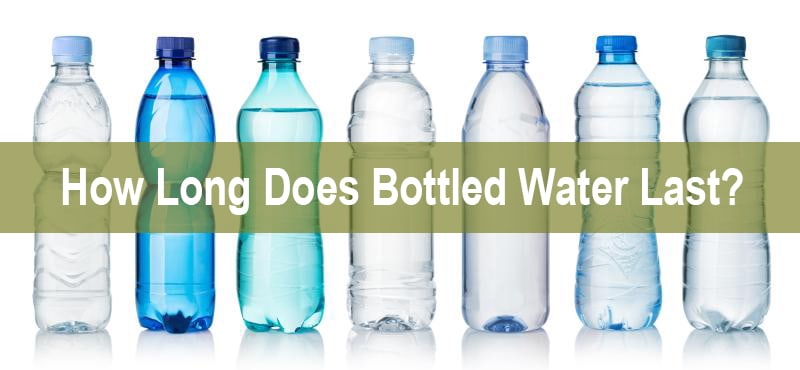If you are wondering how long bottled water lasts, then you’re not alone. To put it bluntly, it is not actually the water that expires, but the plastic bottle container.
Bottled water usually lasts for about 1-2 years. Bottled water stored in a cool, dry, and secure environment typically lasts longer than its expiration date.
Another tip is to separate water bottles from harsh cleaning supplies in the storage area. It is also best not to place them on the ground since dirt or bacteria can come into contact.
To prolong its freshness, it is also recommended to store the bottled water inside the refrigerator.
Does Bottled Water Go Bad/Expire?
Yes, they do. Have you sometimes noticed that water tastes different if you leave them inside a car during a hot day?
Well, that is because the plastic from water bottles are made from polyethylene terephthalate. When combined with long exposure to heat, it affects the plastic. It releases several cancer causing chemicals called BPA into the water.
How Long Does Bottled Water Usually Last?
Check the label. Bottled waters have their own expiration date. The date is for the plastic, and not for the water.
The expiration date on the bottled water lets you know how long its shelf life is. Usually, unopened bottled water has a shelf life of 2 years. On the other hand, opened bottled water has a shelf life of 2-3 hours and if refrigerated, 3-5 days.
Is Bottled Water Bad for You?
Studies have found that there is no harm in ingesting low doses of BPA. In fact, BPA is sometimes found in food stored in plastic containers. There is no scientific evidence of someone dying after drinking expired bottled water.
However, it is still best practice to stay cautious. If the water tastes off or smells different, then it is best to throw it away.
You also need to consider the quality of the water. In another study, researchers tested 10 bottled water brands. They discovered a startling number of chemical contaminants in the water.
They analyzed a wide range of pollutants. The water consisted of disinfection by-products, arsenic, heavy metals and minerals; not to mention nitrate and ammonia, urban wastewater pollutants, and propellants.
These chemicals can cause cancer and serious problems in reproduction ability. It’s as if they’re drinking unfiltered tap water.
There is also another thing to worry about. Bottled water companies are not required by law to submit their findings such as information on where the water is coming from or how they process the water in their factories.
The Final Verdict
Because of the pandemic, it is natural to stock up on bottled water. We all want to prepare ourselves in case another lockdown happens. To prolong their shelf life, be sure to place bottle water in a cool and dry storage area – away from sunlight and in secure storage shelves.
Just choose your water brand wisely. Make sure the company that makes them can be trusted. As always, it pays to do your research before thinking of purchasing a product.

